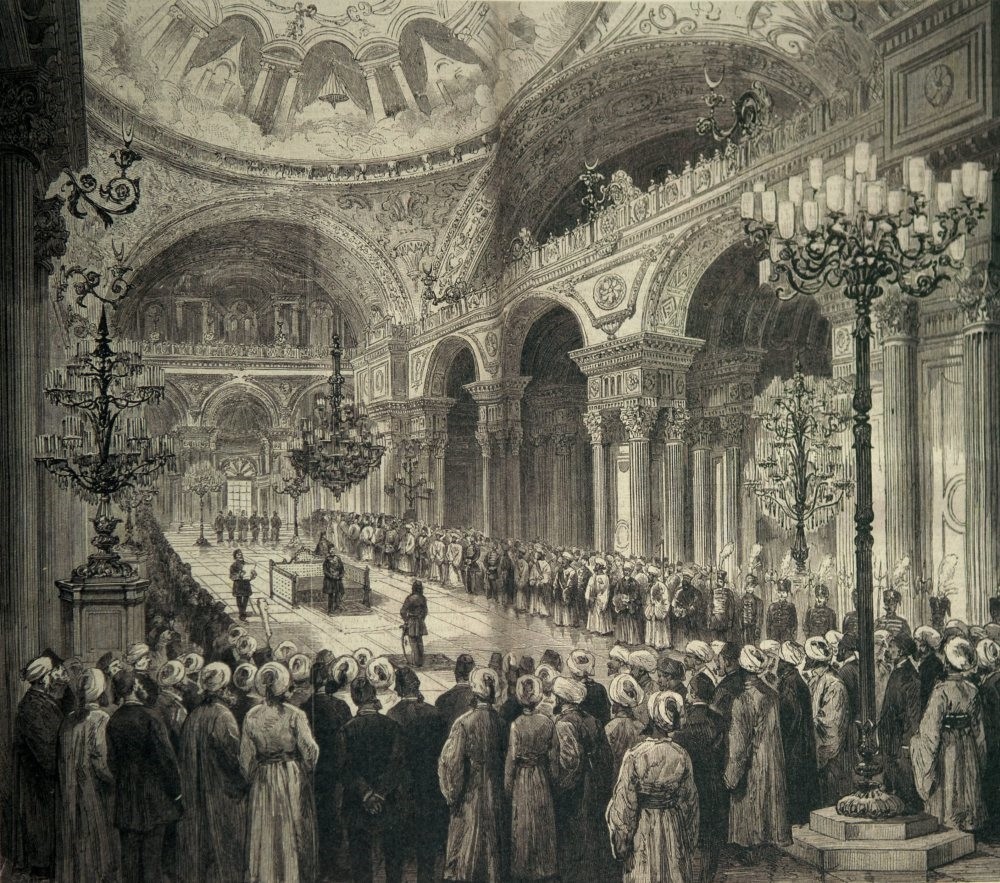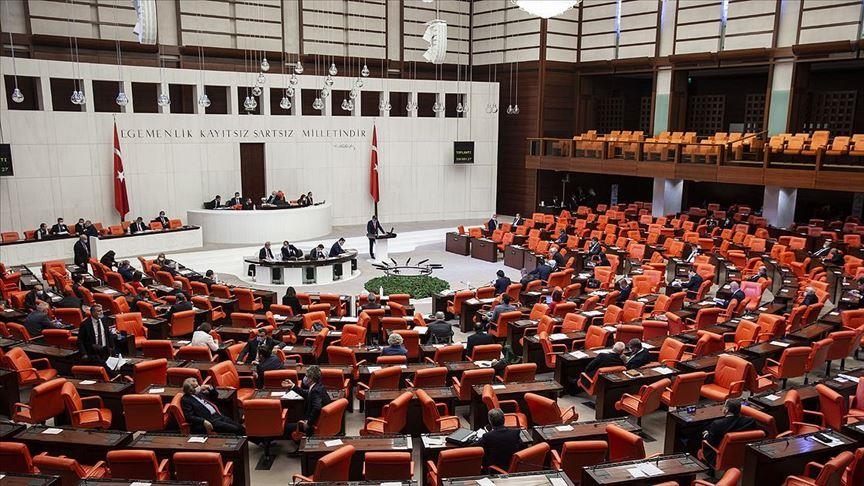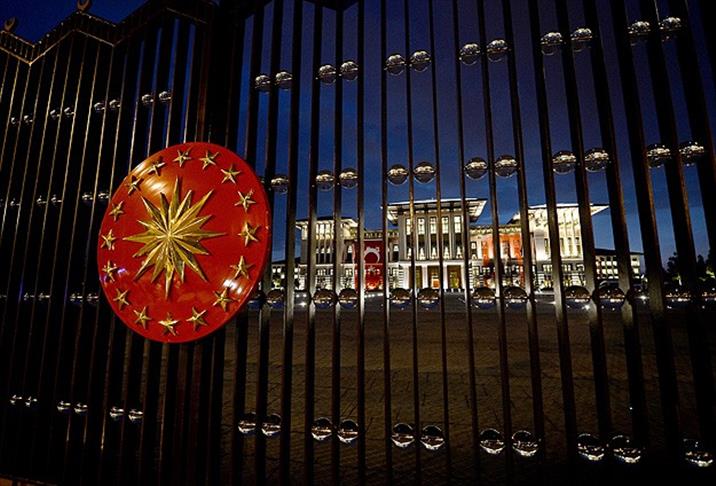A deep look at Türkiye’s new constitution debate with historical background

Following the March 2024 local elections and no upcoming elections in Türkiye until the 2028 general elections, drafting a new constitution has fast become one of the latest agenda items. The road ahead for Türkiye’s new constitution, however, remains difficult and opaque.
Following the 1980 coup, the current Turkish constitution was written under the rule of a military junta in 1982. Alluding to this event, the current legislation is often referred to as the “September 12” constitution.
If successfully passed through the political process, then this will mark Türkiye’s 5th constitution and the only one to be written under the tutelage of a democratically elected civilian government.

Turkish Democratization
By the early 19th century, it became crystal clear to the Ottoman dynasty, its bureaucrats, and elites of the Empire’s inability to combat foreign aggression, influence and competition stemming from the European powers.
The urgency to address these issues manifested itself beginning in 1839 as the “Tanzimat” (“Reorganization”). This initiated the partial or complete overhaul of the government, justice and legal system, and other sectors of life in the following decades.
Türkiye’s democratization period reaches as far back as two centuries. The Tanzimat eventually resulted in the first Ottoman constitution period 1876-1878 and the second Ottoman constitution period 1908-1922.
The first elections in Turkish history took place in 1877, and during the late Ottoman Empire elections would occur some 6 other times.
While Mustafa Kemal Atatürk deserves widespread recognition for founding the Republic and enabling democracy to take root in Türkiye, these debates on democracy and as such the democratization process of Turkish society began well in the late Ottoman Empire.
In the current era of the Republic, Türkiye has already witnessed 4 changes to its constitution in its century-long existence – these constitutions were enacted in 1921, 1924, 1961, and the current one at 1982. Dozens of alterations have been made to the 1982 constitution.
None of modern Türkiye’s constitutions were produced by a civilian government. Both 1921 and 1924 were written during a single-party era and the 1961 and 1982 constitutions by military juntas.
The latest 1982 constitution went through 3 major changes via nationwide referendums:
- October 2007 Referendum (68.95% yes; 31.05% no): President elected via popular vote rather than parliament. Presidential term reduced from 7 to 5 years, and parliamentary elections held every 4 years instead of 5.
- September 2010 Referendum (57.88% yes; 42.12% no): Aimed at bringing Turkish constitution towards EU acquis.
- April 2017 Referendum (51.41% yes; 48.59% no): Executive presidential system enacted; parliamentary system and prime minister office abolished. Seats in parliament increased from 550 to 600. Parliamentary elections held every 5 years instead of 4 years.
Click to access official constitution.

Domestic Debate on Türkiye’s new constitution
All major political parties out of the 14 political parties currently represented in the Turkish parliament agree that Türkiye requires a new constitution.
President Erdogan has recently doubled down on calls for a new constitution, something he’s said over the years.
Over summer 2024, much debate took place as to what a new constitution would entail. The main opposition Peoples’ Republican Party (CHP) and its supporters were quick to demand that the first four articles do not change. That message went viral across social media channels.
The trigger for the call came from Kurdish-Islamist HUDA PAR Party, a somewhat ally of the ruling government with 4 seats in parliament, which demanded the first 4 articles of the constitution to change.
The ruling government comprised of Justice & Development Party (AK Party) and Nationalist Movement Party (MHP), obliged that the first four articles would not change in September and October, respectively.
First 4 Articles:
- Form of the State. The State of Türkiye is a Republic.
- Characteristics of the Republic. The Republic of Türkiye is a democratic, secular and social state governed by rule of law, within the notions of public peace, national solidary and justice, respecting human rights, loyal to the nationalism of Atatürk, and based on the fundamental tenets set forth in the preamble.
- Integrity, official language, flag, national anthem, and capital of the State. The State of Türkiye, with its territory and nation, is an indivisible entity. Its language is Turkish. Its flag, the form of which prescribed by the relevant law, is composed of a white crescent and star on a red background.Its national anthem is the “Independence March”. Its capital is Ankara.
- Irrevocable provisions. The provision of Article 1 regarding the form of the State being a Republic, the characteristics of the Republic in Article 2, and the provisions of Article 3 shall not be amended, nor shall their amendment be proposed.
The Speaker of Parliament Numan Kurtulmus, an AK Party member, called forth a slight clarification to the 3rd article. He argued that rather than “State of Türkiye” it should be the “People of Türkiye”. As the people of the nation are the true owners, indivisible whole.
It remains unlikely nevertheless that any changes occur to the genesis portion of the 1982 Turkish constitution given the political pushbacks.
The other areas that the ruling government would like to change are speculated to be:
- Limit the powers of the executive presidency enacted during the 2017 constitutional referendum.
- A clean new document. 32 footnotes currently explain the dates when amendments were made.
- Limit the powers of the constitutional court, eliminating the binding nature of its decisions.
- Adjusting Article 90 which makes Türkiye’s international agreement of binding nature. Ridding the implementation of ECtHR decisions.
- Protection of family values. That a family is principally based on officiated marriage between man and woman.
- Eliminate the positions of “Muhtars” in urban areas. The lowest elected official in Türkiye, muhtar, was mostly meant for rural governance and their functions in urban settings is no longer a necessity.
Difficult road ahead
A new constitution would require two-thirds parliamentary majority for outright enactment – some 400 out of 600 votes in parliament. The ruling government with deputies from of the Justice & Development Party (AK Party) and the Nationalist Movement Party (MHP) hold 265 and 50 seats respectively.
In which case the main opposition Peoples’ Republican Party (CHP) with 128 seats would need to vote in favor of adopting a new constitution.
The other option is receiving three-fifths majority, some 360 seats, which could eventually take the new constitution to a nationwide referendum after a tango of bureaucratic paper exchanges between the presidency and parliament. Even in this case it remains very difficult for the ruling government to gather these votes.
CHP under the chairmanship Ozgur Ozel may be convinced to join ranks in a new constitution. Yet it remains unforeseen if he would like to initiate the transition of Türkiye parting ways from EU acquis.
CHP’s main roadblock for moving forward is the release of Workers’ Party of Türkiye (TIP) member of parliament Can Atalay.
Atalay was imprisoned on September 2023 for 18 years over attempting to overthrow the government due to organizing and participating in the 2013 Gezi Park protests. Atalay may be released to appease the CHP.
In the Turkish government’s narrative that Washington financed, aided and abated both the 2013 Gezi Park protests and the 2016 July coup attempt, Atalay appears to not have an organic connection to America in this period.
Furthermore, Ozgur Ozel may also be interested in limiting the powers of the presidency.
In either case, it appears that the Kurdish-oriented Peoples’ Equality & Democracy Party (DEM) with 57 seats in parliament will be alienated from the process. They are yet to distance themselves from the rhetoric and support for the founder of the terror organization PKK/YPG.
DEM also seeks to outright get rid of the first 4 articles which is a no go for the ruling government and the main oppposition CHP.
A CHP onboard for drafting a new constitution puts itself in a difficult position as they have had to and will continue relying on DEM for winning local elections across western Turkish cities. Including their support during general elections.
The question then remains how much the CHP would allow the AK Party and MHP to impose their will on the most crucial social contract governing Turkish society.
Presidential system remains over turbulent waters?
The presidential system allowed for wiping out a parallel state structure and bringing the Turkish military fully under civilian control for the first time in the Republic’s history.
Between 2016 and 2018, Türkiye witnessed 2 years of a state of emergency. And since 1923, Türkiye has spent 42 years in total under a state of emergency.
Despite calls from the CHP to reintroduce the prime minister’s office, they may change their minds if they can somehow come to power by 2028.
Government institutions and the security apparatus of the state has now run synchronized with the presidential system.
The presidential complex which was controversially built in 2014 was constructed with particular attention to enhancing the state functions and institutional capacity buildup.
Given regional dynamics with a fast-paced changing environment the facility’s function might be deemed necessary given a ruling government change if the CHP could win a general election – something the party has failed to do since 1978.

The irony of the 1982 constitution is that the main criticism, even from AK Party members, is the State’s centralized control across all relevant government institutions. And the 2017 presidential system only enhanced this.
Although this has worked well for providing security at a turbulent period, the major political parties now agree in re-engineering it in order to make it less powerful.
One of the fears of the 1982 constitution was that its power would be abused if an unwanted government or foreign controlled government emerged at the helm of Türkiye. Something which did almost take place in 2016.
At any rate, while the AK Party has been busy assigning constitutional lawyers and hosting workshops for drafting a new social contract, they will need to have CHP on board.
On October 14, President Erdogan made a bold claim, “We will raise Türkiye above the level of contemporary civilizations.” For this to occur and for the document to have public legitimacy, then the AK Party and MHP have to convince the other political parties.
Over the course of two centuries of Turkish democratization, Turkish citizens continue to be one of the most politically engaged nations registering higher than 80% voter turnouts at local and general elections.
This new constitution can mark a new era but will become another skipping stone as Türkiye’s democracy matures.



